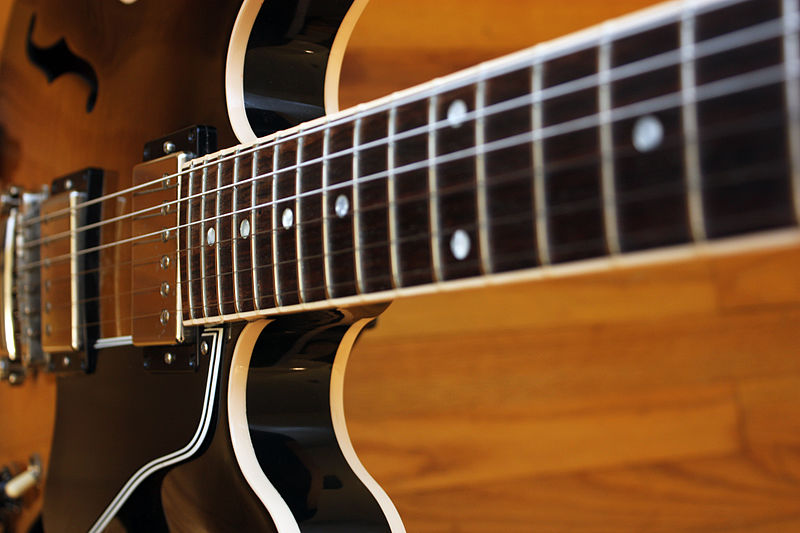Progress has always experienced difficulty in the face of tradition. Many new developments, from instant replay in baseball, to digital cameras in cinema have faced opposition from purists who need little other argument than “this is the way it’s always been done.” And who could blame them? If something works well why change it? In the case of guitar production, the companies that stand at the top got there because of their instruments' coveted sound, which comes in large part from the raw materials used in creating the instrument.
With this in mind, progress can become increasingly difficult when an entire billion dollar industustry operates under the axiom that certain woods make the best guitars. Well there may be a sea change coming in the world of top tier guitar production. Gibson, one of the oldest guitar companies in the world is beginning to rethink the way they approach material choice for their guitars. For over a hundred years Gibson has made their high quality musical instruments predominantly out of specific types of wood. Fret boards often utilize woods like ebony or rosewood because of their denseness, and to offset their color from rest of the guitar. However, the use of these materials has become ever more problematic due to global socio-economic issues.


Ebony is a hardwood that is derived from a species of Diospyros trees found in tropic regions. This incredibly dense wood is valued for its color and stone like hardness. Unfortunately the demand for this slow growth wood has left it and other tropical woods like rosewood in low supply. This combined with climbing prices and regulation aiming to protect these trees have led guitar manufacturers to look for alternative materials.

Though Gibson has every reason to continue making their products the way they have always made them, this first name in guitars has recognized the limit to the natural resources used in fretboards, and has begun to utilize more sustainable alternatives. In a recent article Gibson announced that after about twenty years of research, they have decided that Richlite paper phenolic not only makes a comparable alternative to woods like ebony, it is superior in many ways. Gibson has done many tests to determine whether or not musicians can tell the difference in sound between wooden fret boards and ones made with Richlite, and very few can differentiate the two.

Anyone who has worked with wood knows that moisture and temperature play a huge role in the way the material behaves. Because different types of wood react to their barometric environment in different ways, issues can arise from having a fret board that is a different wood from that of the guitar’s neck. This is especially true when you consider the delicate margin of error in the shape of a guitar neck, which uses its curve to maintain a very specific distance from the strings along the entire length of the neck. Richlite, which is widely used as exterior cladding to protect architectural structures from the elements, will not warp as a result of temperature or moisture change.

Aside from the user benefits of Richlite fretboards, Gibson has recognized the geo-political implications of a more sustainable material. Richlite uses recycled paper pressed with a phelonic resin in a low impact, low energy consumption process. This means that the supply for American made Richlite is far greater than the slow growth trees that provide wood for fretboards. It is always incredibly refreshing to see a huge company like Gibson take a stand—even at the risk of criticism—and alter their program to include a sustainable material that will only improve the quality of their masterfully crafted musical instruments.
Read the original Gibson article here